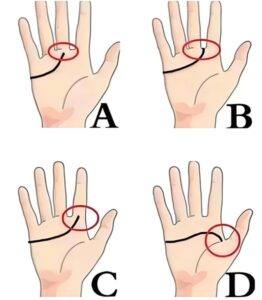In a world where understanding oneself and others can lead to greater personal and professional success, the Myers-Briggs Type Indicator (MBTI) personality test has become a popular tool. Developed by Katharine Cook Briggs and her daughter Isabel Briggs Myers, the MBTI helps individuals uncover their personality type out of 16 distinct types. This understanding can enhance self-awareness, improve relationships, and guide career choices.

What is the MBTI?
The MBTI is based on Carl Jung’s theory of psychological types. It categorizes people into 16 different personality types based on four dichotomies:
Extraversion (E) vs. Introversion (I): This dichotomy describes how individuals gain energy. Extraverts are energized by interacting with others, while introverts recharge by spending time alone.
Sensing (S) vs. Intuition (N): This dimension focuses on how people perceive information. Sensors rely on concrete, factual information, whereas intuitives look at patterns and possibilities.
Thinking (T) vs. Feeling (F): This pair explains how people make decisions. Thinkers base decisions on logic and objective criteria, while feelers consider personal values and how decisions will affect others.
Judging (J) vs. Perceiving (P): This dichotomy highlights one’s approach to structure and planning. Judgers prefer a planned and organized lifestyle, while perceivers are more flexible and spontaneous.
By answering a series of questions, the MBTI identifies which side of each dichotomy a person prefers, resulting in a four-letter personality type (e.g., INFP, ESTJ).
The 16 Personality Types
Each of the 16 MBTI personality types offers a unique blend of characteristics. Here is a brief overview:
ISTJ (The Inspector): Practical, fact-minded individuals who value tradition and order.
ISFJ (The Protector): Warm, dedicated people who are always ready to defend their loved ones.
INFJ (The Advocate): Idealistic and principled individuals with a strong sense of integrity.
INTJ (The Architect): Strategic thinkers with a plan for everything.
ISTP (The Virtuoso): Bold and practical experimenters, masters of all kinds of tools.
ISFP (The Adventurer): Flexible and charming artists, always ready to explore and experience something new.
INFP (The Mediator): Poetic, kind, and altruistic people, always eager to help a good cause.
INTP (The Logician): Innovative inventors with an unquenchable thirst for knowledge.
ESTP (The Entrepreneur): Smart, energetic, and perceptive people who truly enjoy living on the edge.
ESFP (The Entertainer): Spontaneous, energetic, and enthusiastic performers—life is never boring around them.
ENFP (The Campaigner): Enthusiastic, creative, and sociable free spirits who can always find a reason to smile.
ENTP (The Debater): Smart and curious thinkers who cannot resist an intellectual challenge.
ESTJ (The Executive): Excellent administrators, unsurpassed at managing things or people.
ESFJ (The Consul): Extraordinarily caring, social, and popular people, always eager to help.
ENFJ (The Protagonist): Charismatic and inspiring leaders, able to mesmerize their listeners.
ENTJ (The Commander): Bold, imaginative, and strong-willed leaders, always finding a way—or making one.
Why Take the MBTI?
Understanding your MBTI personality type can provide numerous benefits:
Self-Awareness: Gain insight into your strengths, weaknesses, and preferences.
Improved Relationships: Better understand and relate to others by recognizing different personality types.
Career Guidance: Identify careers that align with your natural tendencies and strengths.
Personal Growth: Use your personality insights to develop skills and overcome challenges.
How to Take the MBTI
The MBTI is widely available online, with various platforms offering free or paid versions of the test. While the official MBTI assessment provides the most accurate results, many free versions can still offer valuable insights.
To take the MBTI, you’ll answer a series of questions about your preferences and behaviors. The test typically takes around 15-30 minutes to complete. Once finished, you’ll receive your four-letter personality type and a detailed description of your type’s characteristics.
Conclusion
The MBTI personality test is a powerful tool for discovering more about yourself and others. By understanding your MBTI type, you can unlock a deeper level of self-awareness, improve your relationships, and make more informed decisions about your career and personal life. Whether you’re seeking personal growth, professional development, or simply curious about your personality, the MBTI offers valuable insights that can guide you on your journey.



